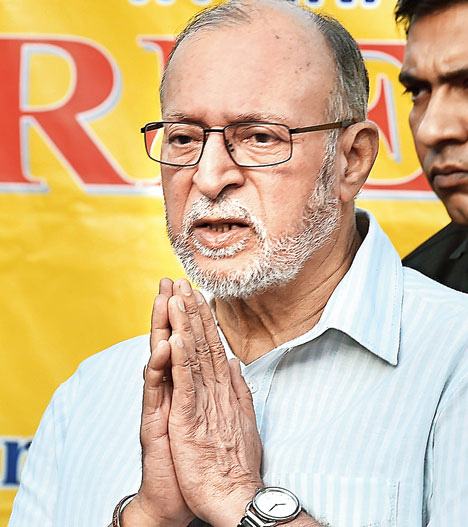
New Delhi: Wednesday's Supreme Court order did hold out some consolation for the Centre too while binding the Delhi lieutenant governor to "aid and advice" from the council of ministers on matters where the Delhi government can legislate.
It said the LG can act independently in matters relating to "national concerns", and denied the Delhi government the power to legislate on issues of public order, police and land.
Writing a concurring judgment, Justice D.Y. Chandrachud agreed with the Centre's stand that Delhi's special constitutional status fell short of full statehood and that it continued to be a Union territory.
"Both in terms of the reach of the legislative power, as well as in relation to the exercise of executive power, the special constitutional arrangements for Delhi recognise that the governance of Delhi implicates a sense of national interest. When matters of national interest arise, they would predicate a predominant role for institutions of national governance," he wrote.
"The Transaction of Business Rules indicate in sufficiently elaborate terms that when there is a difference of opinion between the lieutenant governor and a minister, primarily, an effort should be made to resolve it by mutual discussion.
"If this process does not yield a satisfactory result, the matter can be referred to the council of ministers with whom an attempt is made to seek a satisfactory solution. It is when these two stages are crossed and a difference still persists that the proviso can be taken recourse to by referring the matter to the President."
Justice Chandrachud said the LG had the authority to take immediate action that was "warranted by emergent circumstances until the President has taken a decision".
"But before recourse is taken to the proviso, the lieutenant governor must make every effort with the minister or, as the case may be, the council of ministers to resolve a matter of difference," he wrote.
"The nature of the differences which may warrant a reference to the President cannot be exhaustively catalogued. But it would be appropriate to construe the proviso as a protector of national concerns in regard to governance of the NCT."
The judgment said the lieutenant governor was a watchdog and might be justified in seeking recourse to the proviso where he felt that an executive act by the government was likely to impede or prejudice the exercise of executive power by the Centre.
"The lieutenant governor may similarly consider it necessary to invoke the proviso to ensure compliance with the provisions of the Constitution or a law enacted by Parliament," it added.
"Delhi presents a special case, quite unlike the other Union territories; the constitutional provisions governing it are an amalgam between national concerns (reflected in control by the Union) and representative democracy (expressed through the mandate of a council of ministers which owes collective responsibility to a directly elected legislature).
"There is no gainsaying that the control by the Union is also control of the President, acting on the aid and advice of the Union council of ministers, which in turn owes collective responsibility to Parliament.
"Constitutional statesmanship between the two levels of governance, the Centre and the Union territory, ought to ensure that practical issues are resolved with a sense of political maturity and administrative experience.
"This court has to step in only because skirmishes between the two have raised constitutional issues of the proper distribution of executive control over the National Capital Territory."











